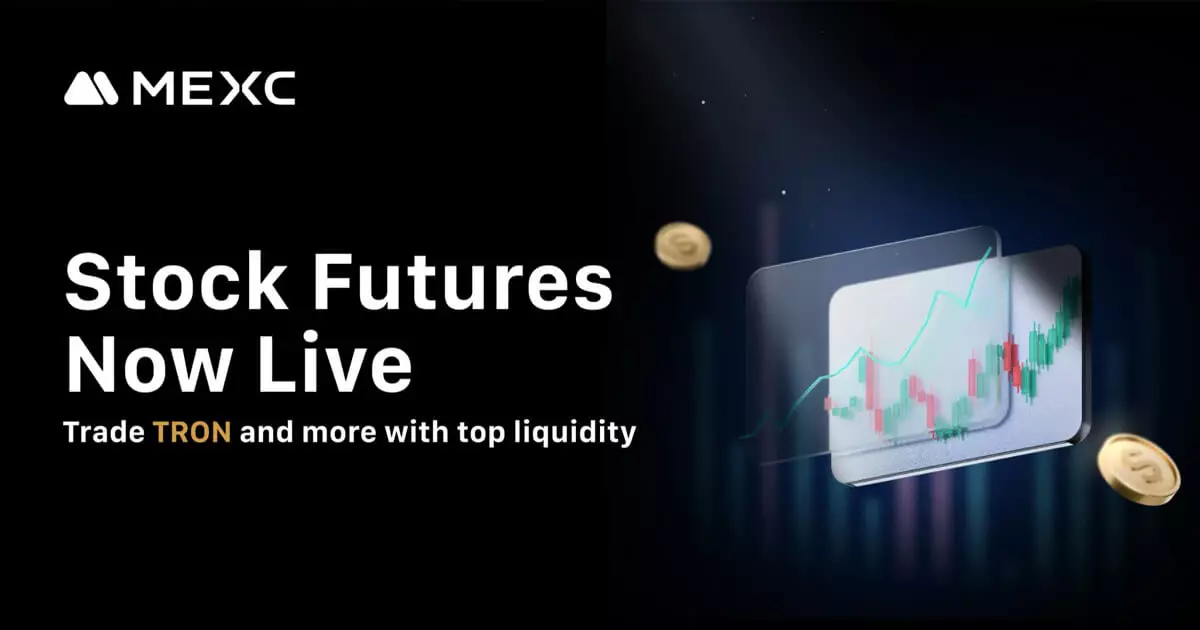MEXC’s recent announcement to list Tron Inc. (NASDAQ: TRON) stock futures appears at first glance to be an innovative stride toward bridging the gap between conventional markets and the digital asset universe. However, beneath the surface lies a complicated web of hype, with the promise of seamless, institutional-grade trading opportunities that ultimately mask the pitfalls of transactional transparency and regulatory ambiguity. While the platform’s marketing emphasizes ease of access and zero trading fees, these superficial benefits distract from the deeper concerns about legitimizing crypto derivatives based on traditional equities.
For many retail investors, this development may seem like a step toward mainstream acceptance, but it risks fostering a false sense of security. Offering leverage up to five times and instant access to a U.S. publicly traded company via the comfort of familiar crypto infrastructure can appear revolutionary—yet it bypasses essential safeguards inherent in regulated equity markets. Volume-driven incentives and the lure of minimal fees could encourage reckless trading behaviors, especially when the opaque environment of unregulated derivatives complicates the risk landscape.
The Dilemma of Regulatory Vagueness and Market Manipulation
Despite MEXC’s claims of institutional robustness, the underlying question remains: how much oversight genuinely governs these crypto-based stock futures? Inserting traditional equities into a largely unregulated crypto setting effectively sidesteps the rigorous investor protections that are a hallmark of established financial markets. The promise of risk management tools and insurance funds offers an illusion of security, yet these safeguards are often inadequate compared to the transparency and accountability standards enforced by government regulators.
Moreover, the proliferation of such derivatives accentuates the threat of market manipulation. Cryptocurrency exchanges, while swiftly growing, remain susceptible to practices, such as pump-and-dump schemes or wash trading, which can distort prices and mislead unwary traders. When the underlying assets are linked to publicly listed companies, this manipulation could extend into the real economy, risking investor losses and undermining market integrity.
The Double-Edged Sword of Innovation in Finance
It’s undeniable that financial innovation can propel markets forward, but aggressive expansion into uncharted waters—such as listing traditional stocks on crypto platforms—must be approached with caution. While MEXC claims to democratize access and lower barriers, the reality is that this convenience may come at the expense of investor protection. What is being touted as a modern marvel risks becoming a catalyst for reckless gambling rather than sustainable wealth-building.
From a conservative, center-right liberal perspective, such developments should not be accepted uncritically. Instead, they demand rigorous regulatory oversight, transparency, and clear boundaries that safeguard rather than exploit less sophisticated traders. The allure of rapid profits and effortless diversification often overshadow the importance of stability and accountability—values central to a balanced financial system. As history shows, unchecked innovation in the financial sphere can quickly spiral into crises if not properly managed, casting a long shadow over the very democratization that these platforms seek to promote.
—
In assessing MEXC’s latest offering, it becomes clear that beneath the veneer of progress lurks a landscape prone to instability, manipulation, and regulatory neglect. While the appeal of integrated derivatives may seem promising, skepticism remains justified. True financial evolution requires cautious advancement—one that prioritizes investor integrity over fleeting gains.

